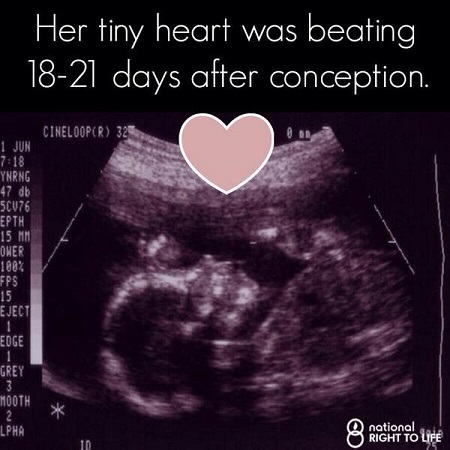Utter drivel. The left is trying to prove the GOP to be “anti-science.” As part of that effort, Amanda Marcotte, writing in Salon, makes another in the ongoing attempts among liberal media types to disprove the truth of Mark Rubio’s assertion that human life begins at fertilization—-which is what Rubio meant when using the popular term, “conception.”
And just as the others, she actually undermines the very meaning of “science” that she purports to defend.
Stating that a new human life begins at fertilization is basic embryology. But Marcotte sniffs that this biological fact is “anti science.From her piece:
The claim that “human life” begins at conception is not one asserted by science, but by religion, as many religions believe that’s when God injects a soul into a human body. But science is pretty clear that, by the scientific and not religious definition of “life,” life does not begin with conception. In order for life to begin, it has to be non-life turning into life. Since both the sperm and egg are alive, by the measure of science, it’s not life beginning. It’s really just life continuing.
 Good grief. Souls have nothing to do with the biological question. She’s the one bringing in religion, not Rubio.
Good grief. Souls have nothing to do with the biological question. She’s the one bringing in religion, not Rubio.
A sperm is a cell, it is alive but it isn’t a living organism. Ditto an egg. When they join, they cease and a new, distinct human organism–complete with its own genetic makeup different from his or her parents– has come into being, e.g. a new human life.
But apparently because life evolved from the primordial soup there never is a new life:
As biologist P.Z. Myers explains, “We can trace that life all the way back to early progenotes with limited autonomy drifting in Archean seas, to self-perpetuating chemical reactions occurring in porous rocks in the deep ocean rifts. It’s all been alive, so this is a distinction without meaning.”
Whether there is or is not “meaning” to the distinction between previous life and new life, isn’t a scientific assertion. It is a philosophical belief.
Moreover, the argument is harmful to science: Because a bacterium once floated in a sea as the first life on the planet, only it can be considered new life and nothing since? Talk about Deridda-style deconstruction–not of literature, but science–sapping it of all objectivity and enervating its use in ethical deliberations.
Embryology is the science of when life begins and its early development. Embryology textbooks are clear about when life begins:
Human development is a continuous process that begins when an oocyte (ovum) from a female is fertilized by a sperm (or spermatozoon) from a male. (p. 2); … but the embryo begins to develop as soon as the oocyte is fertilized. (p. 2); … Human development begins at fertilization, the process during which a male gamete or sperm … unites with a female gamete or oocyte … to form a single cell. This highly specialized, totipotent cell marks the beginning of each of us as a unique individual. (p. 18)
Keith Moore and T.V.N. Persaud, The Developing Human: Clinically Oriented Embryology (6th ed.)
Here’s another useful quote from another embryology textbook:
Although life is a continuous process, fertilization … is a critical landmark because, under ordinary circumstances, a new, genetically distinct human organism is formed when the chromosomes of the male and female pronuclei blend in the oocyte.
Ronan O’Rahilly and Fabiola Muller, Human Embryology & Teratology, 3rd ed.
Continuous from a beginning point–of the individual–not from the start of life on earth!
The moral value of the new human life is not a scientific question, which can only tell us when a new organism has begun and how it develops, not whether it is worth more than chopped liver.
CLICK LIKE IF YOU’RE PRO-LIFE!
Bottom line: Deconstructing actual science as a strategy to win a moral and ethical debate is the actual “anti-science.” Marcotte, not Rubio, is the one pushing gibberish biology.
HT: Dr. Dianne Irving for her valuable collection of quotes from embryology textbooks.
LifeNews.com Note: Wesley J. Smith, J.D., is a special consultant to the Center for Bioethics and Culture and a bioethics attorney who blogs at Human Exeptionalism.







